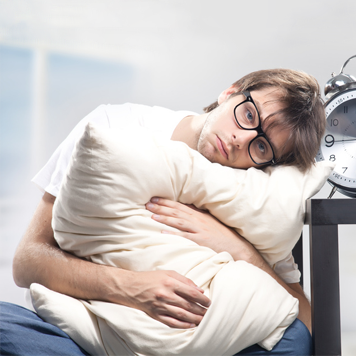Improve Your Sleeping Habits to Beat Insomnia

Average adult needs 7 to 9 hours of sleep a day.
Even though most people are aware of this well-known fact they sleep less than 7 hours a day. How are your sleeping habits? Do you follow the regular sleeping routine or do your daily tasks not allow you to?
Research shows that in the last few years the good night's sleep has been becoming a real luxury in developed world. Many people have a prescription for sleeping pills to manage their sleeplessness. But there are other ways to beat the insomnia, let me introduce you to some…
Establish Good Sleeping Routine to Avoid Sleeplessness
It is very important to establish a proper sleeping rhythm to overcome the sleeplessness, stay in good health and manage stress successfully. Sleeping and stress are tightly connected. The correlation between insomnia and stress works both ways and many times we get caught in the loop. Sleepless nights prevent our body to regenerate well from everyday strain and lower our stress-resilience. On the other hand more stress can seriously disturb our sleep. If it happens only now or then, we don't have to worry – we all have bad nights sometimes. But if sleeplessness continues and becomes a long-term problem, something has to be done.
Adopt New Healthy Habits for Good Night Sleep
To avoid health problems, caused by chronical insomnia, we have to break this cycle by adopting proper sleeping habits. Every change takes time, but if we are persistent the positive effects will soon appear. I have prepared the following tips 24alife users can use, to help you improve your sleeping habits which are also one of the foundations to your well-being:
- Don't sleep less than 7 hours. Try to get your sleep every day at approximately the same time, e.g. from 11 p.m. to 6 a.m.
- Keep your sleeping rhythm during the weekends and holidays too in order to prevent sleeping disturbances on the working days.
- Did you know that the optimal time for sleeping is between nine in the evening and midnight? Try to get at least an hour of optimum sleeping time.
- Don't sacrifice sleep to raise productivity. It can have a reverse effect. Long-term lack of sleep can cause forgetfulness and lower your focus and concentration which also leads to lower effectiveness.
- Avoid drinking coffee, green tea or alcohol before sleeping. Eat 2 hours before going to bed – but also don't go to bed hungry. Meals with low GI and GL can help a lot.
- Turn off the TV and other electronic devices. It's even better to keep all of them out of your bedroom. A separate place for sleep would be an even better solution. If you use one room only for sleeping, you will subconsciously link sleeping to this place which can help you fall asleep more easily.
- Forget all worries, obligations, and doubts and redirect your thoughts. If you think you cannot empty your head of these sleep-killers, try listening to a 24alife relaxation exercise.
- An intense workout shouldn't be done before sleeping time. It activates your brain and wouldn't allow you to calm down. On the other hand at least a light walk during the day is recommended to burn excessive energy.
- The worst thing to think of when we can't fall asleep is to worry about not being able to fall asleep. It is best to put this thought aside and just focus on relaxation. When you'll relax and calm down enough, you'll fall asleep as well.
Enhancing your sleeping routine is also one of the aims of 24alife Anti-Stress Health Package meant for corporations. Also, you can try out the professional Relaxed&Confident program, created for personal use.